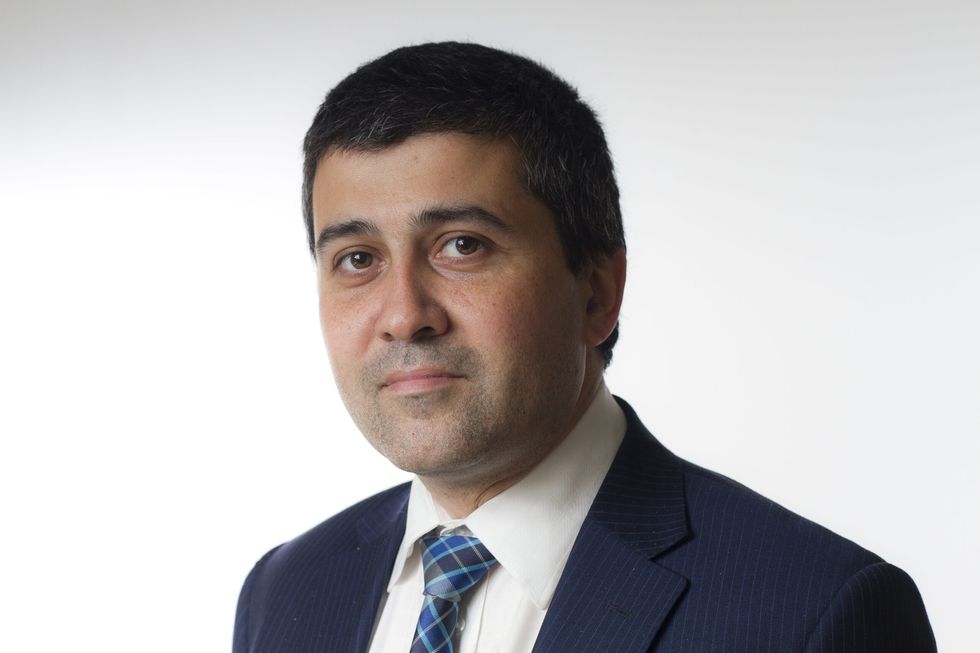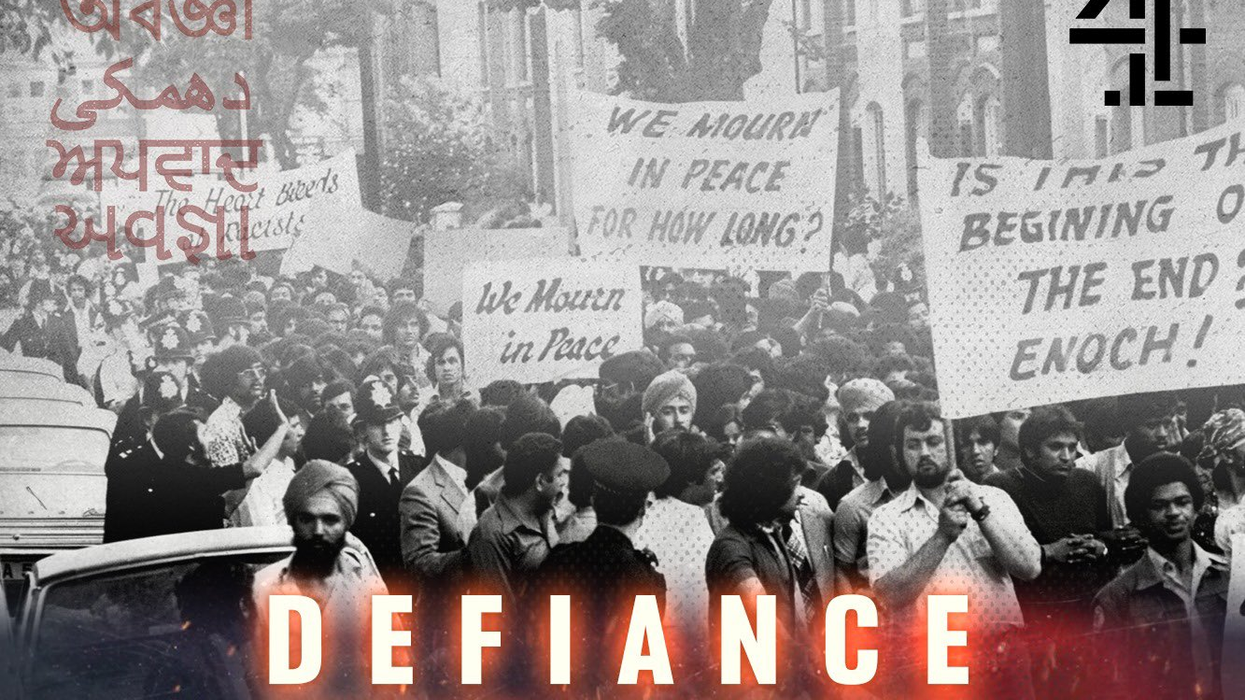THE history of British Asians has mostly been told in fragments. There is no similarly-storied moment of arrival, as that of the Windrush to symbolise the multiple journeys across the 1950s-1970s that made Asian communities Britain’s largest minority group.
A potted history of race in Britain might often jump from Enoch Powell’s ‘Rivers of Blood’ speech in 1968 to the Brixton Riots of 1981, before the belated arrival of post-war black and Asian voices in parliament in 1987.
By exploring the British Asian experience of racism, resistance and social conflict across the scorching summers of 1976 to 1981, the three-hour Channel 4 documentary series Defiance fills in important gaps.
It opens with the murder of teenager Gurdip Singh Chaggar in Southall. “One down, one million to go” snarls National Front chairman John Kingsley Read. It goes on to depict the battle of the Bengali community and the National Front for Brick Lane. The also casts light on the menacing Special Patrol Group, and the 25-year suppression of the official report into their killing of the teacher Blair Peach.
Its witness testimony makes a distinctive contribution to the social history of Britain, because this is a story necessarily told ‘from below’. Though Powell had placed the very presence of Commonwealth migrants and minorities at the epicentre of British public debate, almost no Asian or black voices were in the rooms where decisions were being made about either immigration policies or anti-discrimination laws.
Different lessons can be taken from Defiance. “Come what may, we are here to stay” was the slogan of the Southall Youth Movement. The core narrative of Defiance is about the frustration of a younger generation, seeing the moderation and meekness of the older group as futile.
“Fight fire with fire” is a lesson that may often present more dangers for minority than majority groups. That defiance felt like a reluctant, necessary means of self-defence, in the absence of police protection is put with dignity and power by Suresh Grover of the Monitoring Group and Balraj Purewal, who co-founded the Southall Youth Movement. The argument felt more persuasive in response to the 1976 murder and the acquittal of the Bradford 12 in 1981 than in the pitched battles with police over attempts to burn down a pub frequented by skinhead bands in Southall in 1981.
Yet its witness testimonies capture a plural range of generational shifts. The brothers Shaf and Rafiq Mughal argue over how to make change happen – with Shaf joining the police while his brother is a campaigning journalist.
Pritpal Sahota talks of the generational rift between home and school, over what it meant to be Asian or British. The series has the confidence to give her the final word, to contest what the lesson for the next generation might be, doubting the support of the police or the courts. “There are no lessons. It happened to us”, she concludes.
The series has evoked a deeply emotional response from viewers who recall growing up in this atmosphere. Watching Defiance reinforced my sense that those of us even just a few years younger often seemed a luckier generation. The experience of being 15 years old was different in 1989 than in 1979.
Those only a few years older than myself often talk about the inevitability of racist violence. Maybe I was lucky to never experience that myself, yet the racism on the playgrounds and football terraces had often become more verbal than violent.
The atmosphere had certainly softened dramatically by 1999 too. But progress is never linear. It is not hard to hear echoes of that era in politics today. Because Southall had become half-Asian by the mid-1970s, it is an early focal point about dispossession and displacement.
That centre of gravity shifted from Southall in the 1970s to Leicester in the 1980s, Eltham and Greenwich in the 1990s and Oldham in the 2000s. Such viscerally territorial local arguments are more seldom seen today. Social relationships across groups among the young are simply much closer. Yet the diffuse online networks that promote the Great Replacement Theory can still seek to socialise a toxic fringe into deadly violence.

The most significant impact of Defiance may be to begin new conversations across generations with those born later. I watched the first episode with my older teenagers, aged 18 and 16. They found the visceral hatred shocking, and were surprised to at how Asians were viewed as a threat, being more familiar with different stereotypes of the group.
Their overriding sense was about how much had changed rather than how little, though they have high expectations about what more should change again now. Whatever they decide its lessons might be, the next generation should learn about this period. A society can change dramatically within a lifetime – but social change rarely happens by chance.
(The author is the director of British Future)




